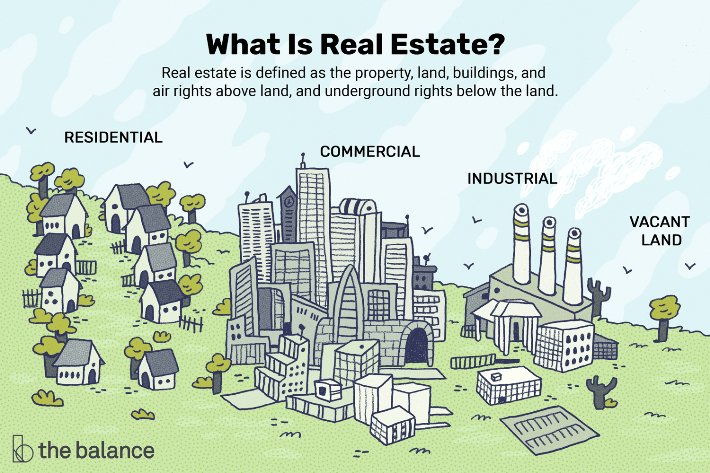What is Real Estate/Realty?

What is Real Estate/Realty? A Comprehensive Overview
The terms "real estate" and "realty" are often used interchangeably, but there are subtle differences. Both refer to property consisting of land and any structures or natural resources attached to it. This article provides a comprehensive overview of real estate, exploring its different types, key concepts, and the role it plays in the economy.
Defining Real Estate/Realty:
-
Real Estate: This term encompasses land, including everything that is permanently attached to it, whether natural (like trees and minerals) or man-made (like buildings, roads, and fences). It's a broad term that refers to the physical property itself.
- Realty: This term is more closely associated with the business of real estate. It refers to the buying, selling, renting, and managing of real estate properties. A "real estate agent" or "realtor" is someone who works in the realty business.
Types of Real Estate:
Real estate can be broadly categorized into several types:
- Residential Real Estate: This includes properties intended for housing, such as:
- Single-family homes
- Apartments and condominiums
- Townhouses
- Vacation homes
- Commercial Real Estate: This includes properties used for business purposes, such as:
- Office buildings
- Retail stores
- Shopping malls
- Industrial warehouses
- Hotels
- Industrial Real Estate: This includes properties used for manufacturing, production, and storage, such as:
- Factories
- Warehouses
- Distribution centers
- Land: This includes undeveloped land, such as:
- Vacant lots
- Agricultural land
- Forests
Key Concepts in Real Estate:
- Ownership: Real estate ownership can take various forms, including:
- Fee Simple: The most complete form of ownership, granting the owner full rights to the property.
- Leasehold: Ownership for a specific period of time, as defined in a lease agreement.
- Location: Location is a critical factor in real estate value. Properties in desirable locations tend to be more valuable.
- Appraisal: An appraisal is an estimate of a property's market value, typically conducted by a qualified appraiser.
- Mortgage: A mortgage is a loan used to finance the purchase of real estate.
- Real Estate Market: The real estate market is influenced by various factors, including supply and demand, interest rates, and economic conditions.
The Role of Real Estate in the Economy:
Real estate plays a significant role in the economy:
- Economic Growth: The construction and development of real estate contribute to economic growth by creating jobs and stimulating related industries.
- Investment Opportunities: Real estate provides diverse investment opportunities for individuals and institutions.
- Wealth Creation: Real estate can be a significant source of wealth creation through property appreciation and rental income.
Working with Real Estate Professionals:
Several professionals are involved in the real estate industry:
- Real Estate Agents/Realtors: These professionals help buyers and sellers navigate the real estate transaction process.
- Real Estate Brokers: Brokers have more advanced training and licensing than agents and can operate their own real estate firms.
- Appraisers: Appraisers provide independent estimates of property values.
- Property Managers: Property managers oversee the day-to-day operations of rental properties.
Conclusion:
Real estate is a complex and dynamic sector that plays a vital role in the economy. Understanding the different types of real estate, key concepts, and the role of real estate professionals is essential for anyone involved in buying, selling, renting, or investing in property. Whether you're a first-time homebuyer or a seasoned investor, seeking professional advice from qualified real estate professionals is highly recommended.
